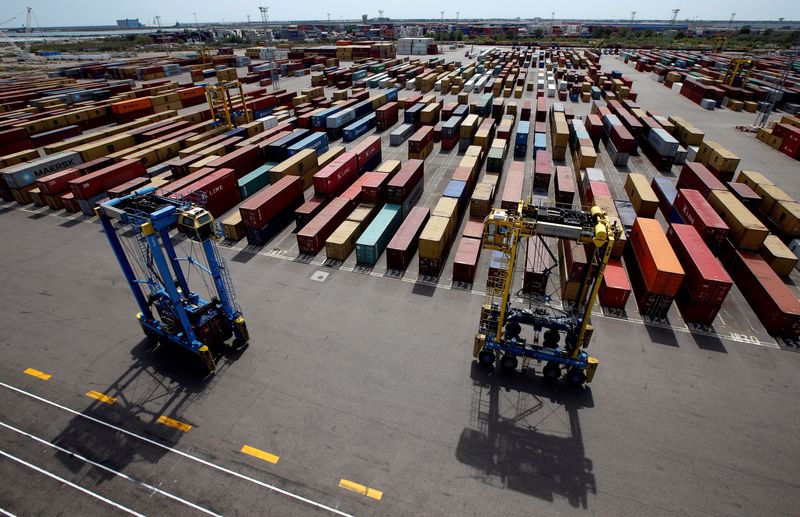By Leigh Thomas
PARIS (Reuters) - Germany's economic weakness is casting a flattering light on France's relative resilience that belies the otherwise middling performance of the euro zone's second-biggest economy, economists say.
The European Commission said on Monday the two economies were on diverging paths this year with Germany forecast to be in a recession with a 0.4% contraction and France expected to grow 1.0%.
With weak construction and declining construction investment weighing on Europe's biggest economy, Germany's outlook was slashed from a previous forecast for 0.2% growth while France was upgraded from 0.7%.
However, France's improved outlook stems in no small part from a particularly strong second quarter when the economy grew 0.5% thanks to exceptionally strong exports of aircraft and the delivery of an ocean liner, not to mention a boost from firms rebuilding inventories.
"Germany's not doing very well, that's for sure, but to say that means France is doing well would be pushing it," said Mathieu Plane with the OFCE economics think tank in Paris.
The contrasting fortunes of the euro zone's two biggest economies can also be explained by tailwinds working against Germany and headwinds helping France.
Germany's manufacturing-focused economy is struggling to adapt to being cutoff from cheap Russian gas and the rise of the electric vehicle, said Charles-Henri Colombier with the Rexecode economics think tank in Paris.
Germany's gas-hungry chemical industry has seen production fall 18% from 2019 levels while in France it is only 8%, Colombier said. Meanwhile, German motor vehicle production is down 26% and only 6% in France.
"France is still benefitting from lingering post-COVID phenomena that don't have a corollary in Germany," Colombier said, citing record summer tourism numbers and a rebound in Airbus orders as air travel continues to bounce back.
Additionally, the strength of the French labour market has repeatedly surprised economists but is nonetheless widely expected to soften as firms shift down in response to weak confidence in their business outlooks.
That leaves few props to lend support to French growth going forward other than household savings. In the second quarter the household savings rate -- the portion of disposable income that is not spent -- reached nearly 19% and could boost spending if consumers bring the rate back to more normal levels around 15%, Plane said.
"We can expect growth to be very modest in 2024," he added.
In preparation for the release of the 2024 budget bill at the end of the month, France's Finance Ministry is due to publish its updated economic forecasts in the coming days.
The ministry is widely expected to cut the 1.6% forecast it has had until now for 2024 as growth slows in many of France's major trade partners - first among them Germany.

But unlike Germany, France cannot count on the public finances offering support as the French government has recommitted to reining in spending, which surged to record levels during COVID and remained high during last year's energy price crisis.
"Structurally Germany has gigantic budget leeway. In that context, the question is how is Germany going to react," Plane said.